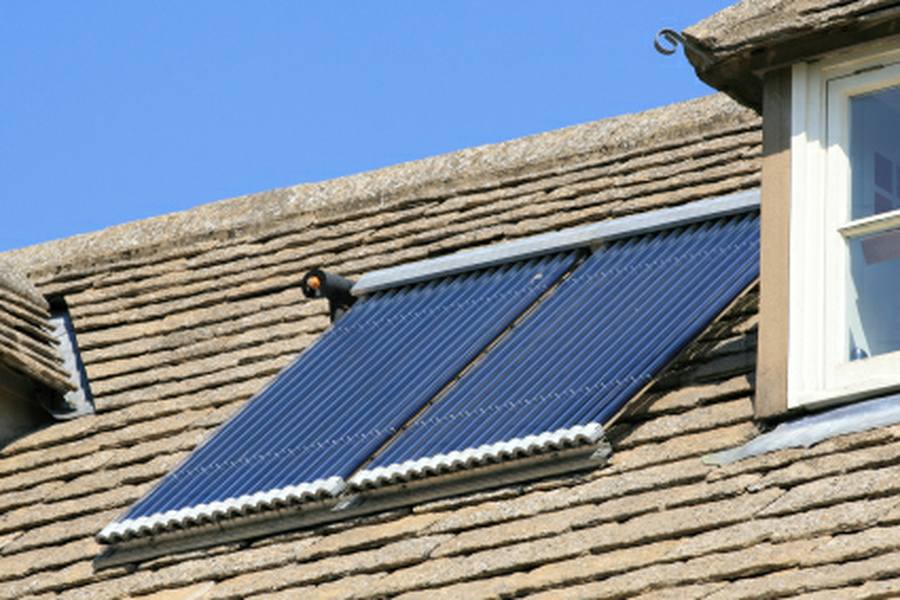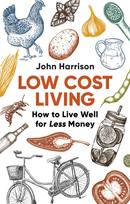We all want to be green, reduce our carbon footprint and use of energy and resources. It’s the price we have to pay to reach these goals that can be a problem. Often we need to invest money in green measures but is it a wise investment? The best use of your money for the greatest benefit?
Low Energy Lighting Systems
Sometimes the choice is clear-cut and simple. For example, buying a low energy light bulb might cost 3 times the conventional alternative but that light will last 10 times as long and use a tenth of the power. This saves the additional cost many many times over the life of the bulb.
Since a low energy bulb (CFL or LED) will cost at most but a couple of pounds there’s no question of not having the money to invest. See this article on Low Energy Lightbulbs for more information on different types of lighting and a calculation of the money that can be saved.
Solar Water Heating System
Other choices are not so clear cut and simple, especially energy saving measures that require a large financial investment. One good example would be the calculations we did about heating our water with solar power.
Potential Savings
Currently our heating and hot water are powered primarily by LPG which is about twice the cost of mains gas. This costs us currently about £800 pa in total. It’s a modern combi condensing boiler so there are no savings to be made there unless we installed a heat pumped system.
Not all the energy is used to heat the water, most is for room heating. The water heating probably costs as little as £100 a year, possibly £150.
Apart from high summer, we’d be hard pressed to supply all our hot water from a solar system. Most of the time the best we could do is to pre heat the water, taking it up from the mains temperature around 5ºC to 15ºC The boiler would then have to do the rest, taking it up to a supply temperature around 40ºC
For sake of argument, let’s say we could save £75 a year although I think the true figure would be as little as £25
Expected Costs
There are various ways to put in a solar water heating system. We’d certainly need to fit panels on the roof, a pumping system and a hot water tank plus some electronics to control it all.
Now I’m not one of nature’s engineers. My attempts at plumbing, despite have seen things done at close hand and knowing the theory, usually end up with an impromptu indoor fountain and frantic calls to a proper plumber for help. So we’ll need the system installing.
The total costs (we had rough estimates) ranged from £1200 to £2000. Let’s take the lowest figure for our final calculations.
Payback Times
Payback calculations can get quite complicated but we’ll keep this one simple. The first assumption is that the installation will last forever and not require maintenance. The second is that we have nothing better to invest the money in.
So at a cost of £1,200 and a return of £75 a year it will take 16 years to get our money back. At the top end of £2,000 and the low savings figure of £25, 80 years. We didn’t go ahead.
Conclusion
Whenever you look at spending to save, base your decision on two things:
- Do you have the money to do it?
- What are the likely payback times?
There’s an interesting infographic online about the potential savings you can make here: Property Rescue’s energy saving tips
Articles on Energy Saving, Green Energy and Alternative Energy
- 6 Frugal Ways to Keep Warm this Winter
- Energy Saving Tips for Your Home
- Energy Switching and the Price Cap – How Households can Save
- How to Save Money by Using Solar Energy
- Insulating Rented Homes – Reduce Your Energy Bills
- Insulation – Save Energy! An Overview of Insulating Your Home
- Reducing your energy bills in 2023
- Saving Money by Being Green – or Wasting Money?
- Simple ways to make your home more energy efficient
- Some Simple Solar Projects You Can Do At Home
- Loft Insulation – Comparing Loft Insulation Materials and Methods
- Wall Insulation – Different Methods of Wall Insulating
- Windows, Reducing Heat Loss & Double Glazing
- Standby Electricity Costs – Save Energy!
- Reduce Your Electricity Bills! Ten Electricity Saving Tips
- Low Energy Light Bulbs: LED, CFL & Halogen Explained
- Saving Water & Rainwater Harvesting


